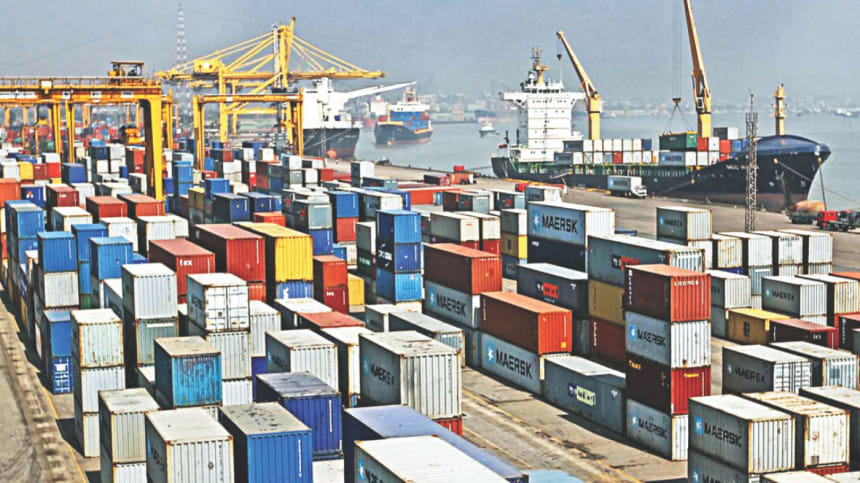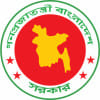Govt eyes $60b exports in 3 years

The government has come up with a host of incentives including low-interest loans under the new export policy to facilitate receipts of $60 billion by fiscal 2020-21.
Last fiscal year, exports fetched $36.66 billion, up 5.81 percent from fiscal 2016-17, but fell short of the government's target of $37.5 billion, according to data from the Export Promotion Bureau.
The new export policy for fiscal 2018-19 to fiscal 2020-21 was approved yesterday at the cabinet meeting chaired by Prime Minister Sheikh Hasina.
Leather will get special focus in the new export policy to reduce dependency on garment, which accounts for more than 80 percent of Bangladesh's export receipts. Benefits enjoyed by the garments industry will be extended to the leather industry.
Programmes will be taken to upgrade the shoes and leather goods related industries to green standards. Central bonded warehouse will be set up for storing the raw materials of the leather industries and reducing the lead time.
The number of highest priority sectors has been raised to 15 from existing 12 and the number of special development sectors to 19 from existing 14, said Shafiul Alam, cabinet secretary, at a briefing after the meeting.
The priority sectors and special development sectors will be given special benefits including subsidies, tax benefits.
The three new priority sectors are denim, active pharmaceutical ingredients and reagents.
The five included in the special development sectors are: light engineering products (motor cycle batteries), photovoltaic module, cashew nuts (raw and processed), processed crabs and toys.
This time, special steps were taken to extend easy term loans and other banking facilities to export-oriented industries from the Export Development Fund (EDF) of the Bangladesh Bank.
The central bank will form two funds: technology development and upgradation fund and the green fund. Loans will now be provided for modernisation and technology upgradation of export-oriented industries.
In the export-oriented industries, local value addition has been cut to 30 percent from existing 40 percent. Frozen fish and fish processing industries will be given logical amount of tax facilities as export-oriented industries.
Pharmaceutical and information technology sectors will be given various tax and incentive benefits. A special economic zone will be built at Gazaria in Munshiganj for the plastic sector soon.
The garment sector will be able to send samples worth a maximum of $20,000 instead of existing $15,000.
The cabinet also approved in principle the drafts of Bangladesh Sugar-crop Research Institute Act, 2018 and Bangladesh Road Transport Corporation Act, 2018.

 For all latest news, follow The Daily Star's Google News channel.
For all latest news, follow The Daily Star's Google News channel. 








Comments